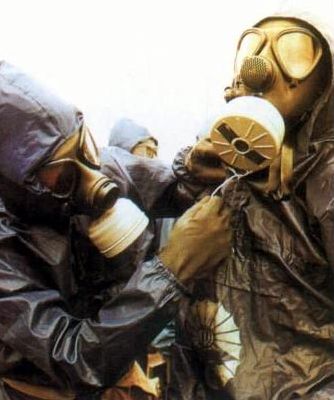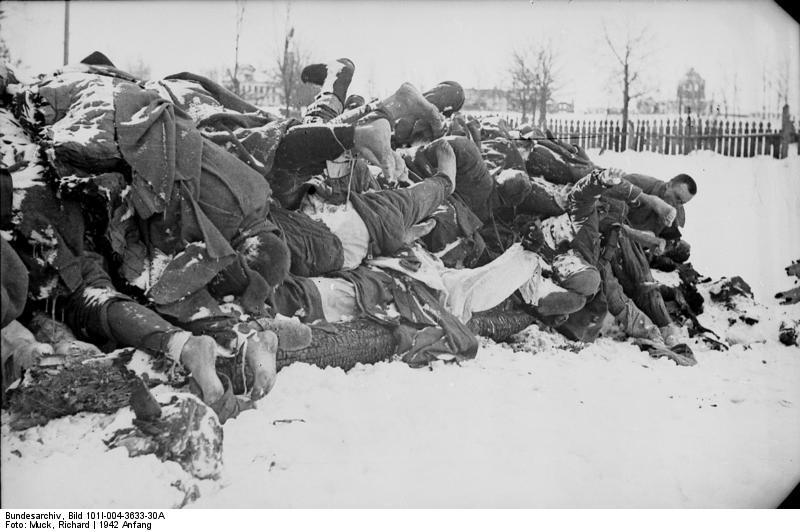
Something strange happened on Monday. The Assad regime came out and publicly declared that they had chemical weapons and were willing to use them against any state willing to intervene in Syria’s internal war. On the one hand this wasn’t surprising — desperate regimes often throw out desperate threats in an attempt to hold on to power. If Assad can convince the international community to stay out of Syria, he has some chance of maintaining control.
What was surprising was how the opposition responded. That same day the Free Syrian Army not only confirmed that the Syrian government had chemical weapons, but they asserted that the government had moved the weapons to key locations along the Syrian border. This reaction appeared to enhance the credibility of Assad’s threat. Why would the opposition do anything to seemingly help their enemy?
The Free Syrian Army didn’t help Assad, they called his very bad bluff. As soon as Asad’s spokesman publicly issued its threat, the opposition likely knew that the regime had made a big strategic mistake. The FSA knew – as much of the world will soon realize – that the threat to use chemical weapons would not only be ineffective, but would backfire. This threat is ineffective because chemical weapons are subject to atmospheric conditions and are difficult to deliver, making them notoriously difficult to use and are therefore not particularly threatening to sophisticated militaries. The threat is also not credible since Assad risks an even worse outcome if Syria’s chemical weapons get into the hands of his numerous domestic enemies. Assad is safer with his chemical weapons arsenal safe in their secure locations and not moved around.
This is why the Free Syrian Army was so quick to capitalize on this mistake. Not only does Assad’s threat to use chemical weapons not likely deter outside intervention, but it will almost certainly incite the ire of the international community even further. The more the world believes that Assad is a monster willing to use chemical weapons, the more likely they are to push for his removal. Threatening to use chemical weapons against countries like the United States, therefore, serves no positive purpose for Assad. It won’t deter intervention, and is only likely to isolate him even more.
One puzzle remains: why would Assad’s spokesman make such an announcement if it only undercuts the regime? The best answer I have is that it represents a poorly thought out strategy by a regime dealing with rapidly changing and deteriorating events. The take-away from this is not that Assad will actually use chemical weapons, but that he is increasingly grasping at straws to try to hold his regime together.








0 comments
You make a case for an extensive form game, but yet say that the first mover does not look down the game tree.
I don’t buy this argument. It hinges on the idea that the outside world, most importantly Turkey and Israel, will not take Assad’s threats seriously b/c “chemical weapons are difficult to deliver and not particularly threatening”.
I am from Turkey and I am not aware of a single commentator who said Assad’s threat is not credible. Turkey’s major population centers such as Diyarbakir and Hatay are within missile range of Syria and no one in Turkey will risk a chemical attack on those cities. Same for Israel. Imagine Al-Qaeda had a small nuclear device. Would anyone say “their threats against NY / Atlanta / SF are not credible, b/c a nuclear device is hard to explode effectively”?
If before Assad’s threat there was any real will in Turkey to intervene, there surely is none now. Nor will Turkey allow the US or another country attack Syria from its borders either. If Assad loses control of these missiles, then maybe. Until then, Assad has successfully deterred foreign intervention.
There are two problems with this line of argument, as I see it.
First, while I do agree that chemical weapons are difficult to employ, I think you might be underestimating their usefulness as a deterrent. They might be imprecise and all, but their destructiveness, especially if we’re talking sarin and VX, makes them more of a threat then you assume, even to sophisticated militaries, but especially for neighboring civilian populations as the commenter above noted. Invading Syria would be a costly and dangerous endeavor even without having to worry about chemical weapons.
Second, and related, I’m not sure that Makdissi meant to say that they would only use chemical weapons on the invading force(s). Rather, I think he was trying to say that if external actors intervene they’ll start using chemical warfare against all enemy parties (they already label the rebels as foreign agents). This might still be a bluff, but it’s a much more credible one. The threat becomes especially credible if you consider, as you have persuasively argued many times before, that for Assad defeat is tantamount to death.
I think the case of Iraq is an interesting comparison here. Saddam might have been deterred from using chemical weapons during Gulf I, but would’ve refrained again in Gulf II if he still had them? Or better still, would the US have gone in guns blazing had they thought that Saddam had a deployable chemical arsenal? I doubt it.
I agree that Iraq under Saddam Hussein is an interesting example. Hussein used chemical weapons during the Iran-Iraq War because he had no incentive not to – the Iranians could not punish Iraq for using chemical weapons, because they did not have the ability to escalate their commitment to the war. During the Gulf War Hussein knew that the Americans could invest much more effort into destroying his government than they did – a powerful incentive to refrain from using chemical weapons, and accept defeat in Kuwait.
In Syria, however, the regime is (in some sense) the defender; as Walter has noted, the threat of prosecution at the ICC and example of Qaddafi makes this a fight to the death for Assad, and many of Alawite military officers. There’s no incentive to hold back. If Assad judges the survival of his regime (and his own life) depends on disrupting a concentrated formation of ground troops, I doubt he’ll refrain from using everything at his disposal to win.